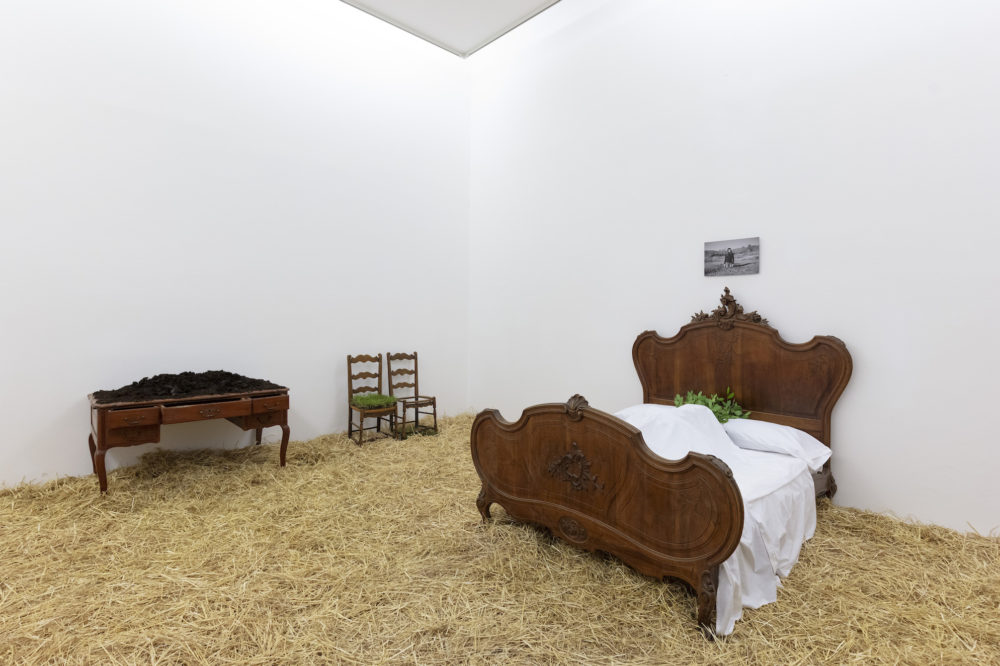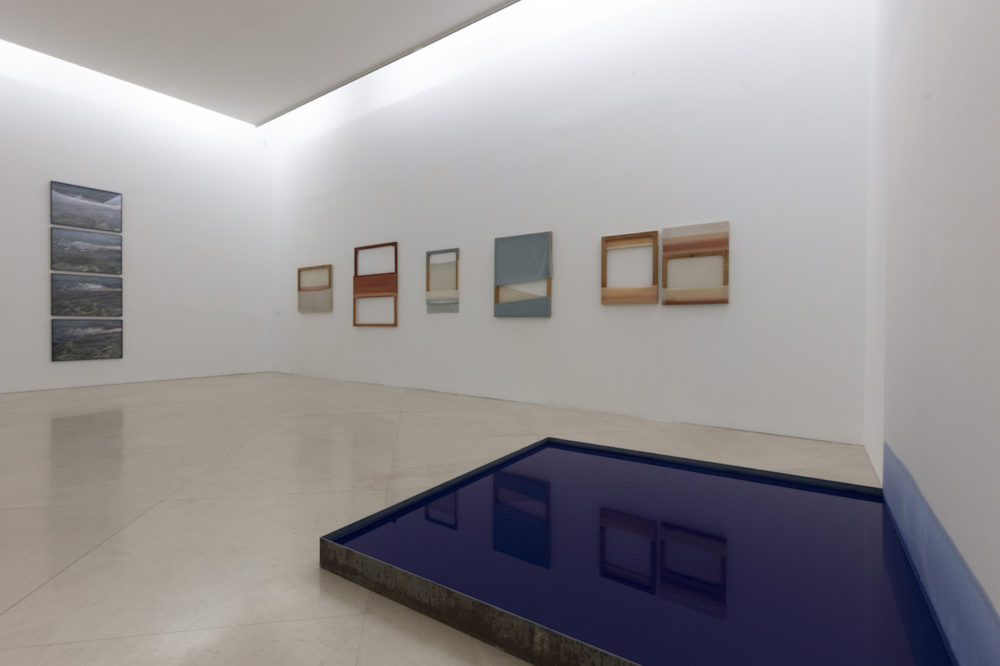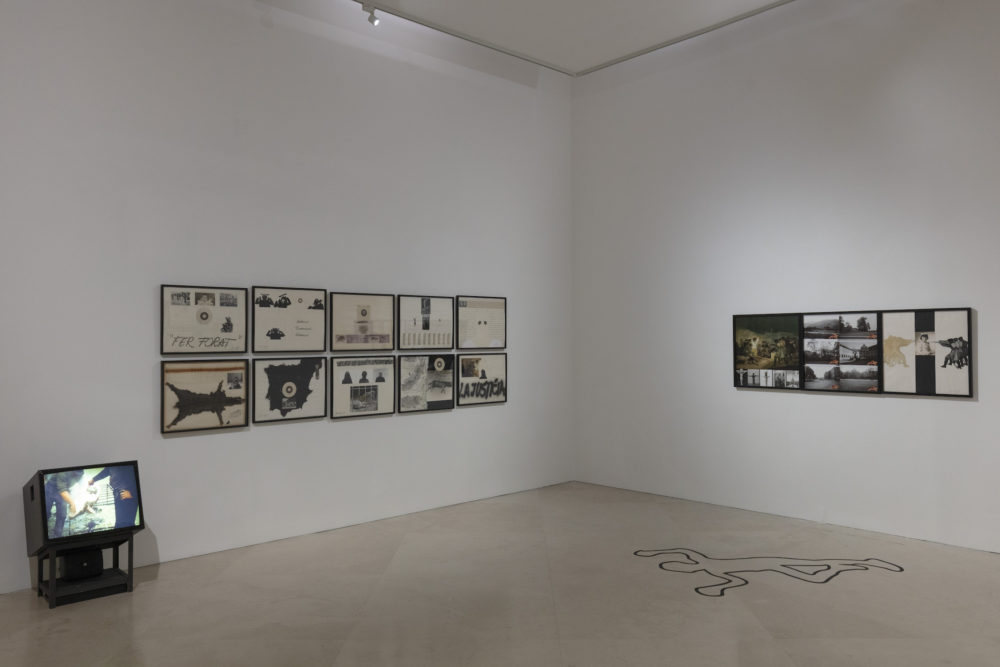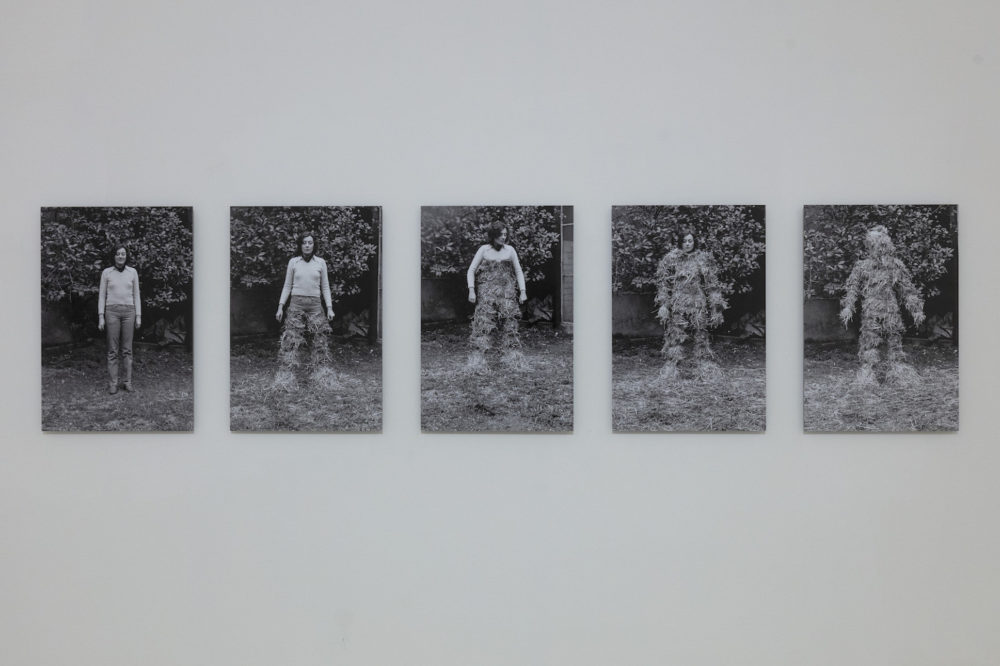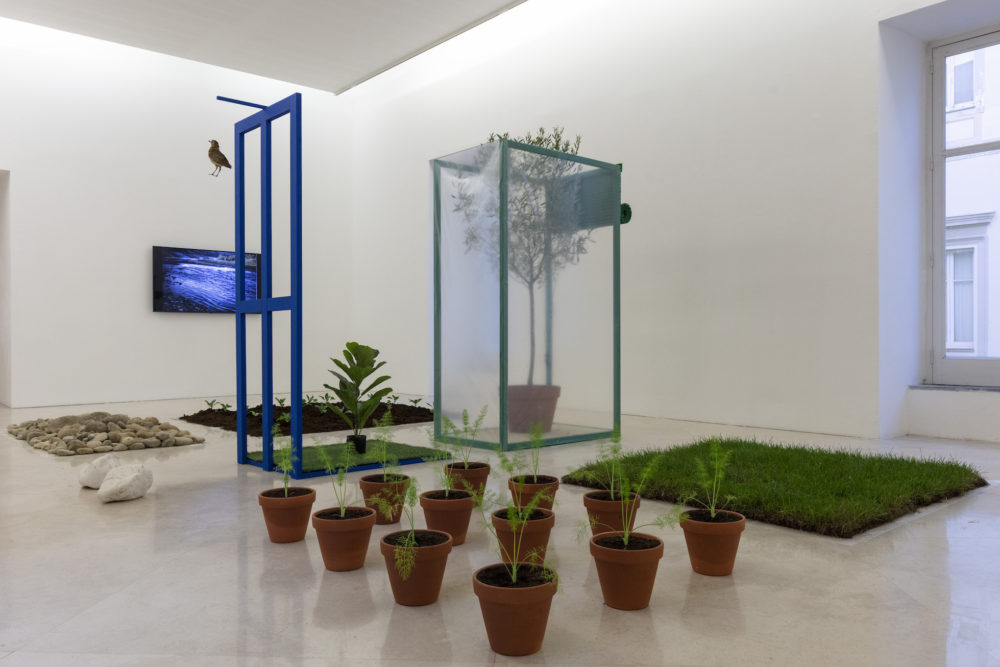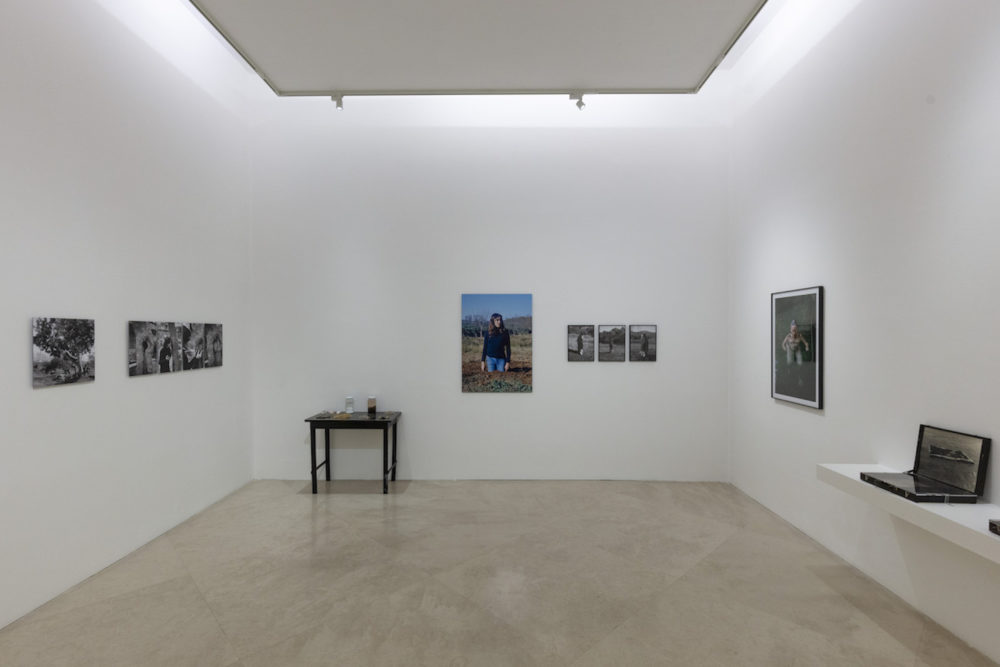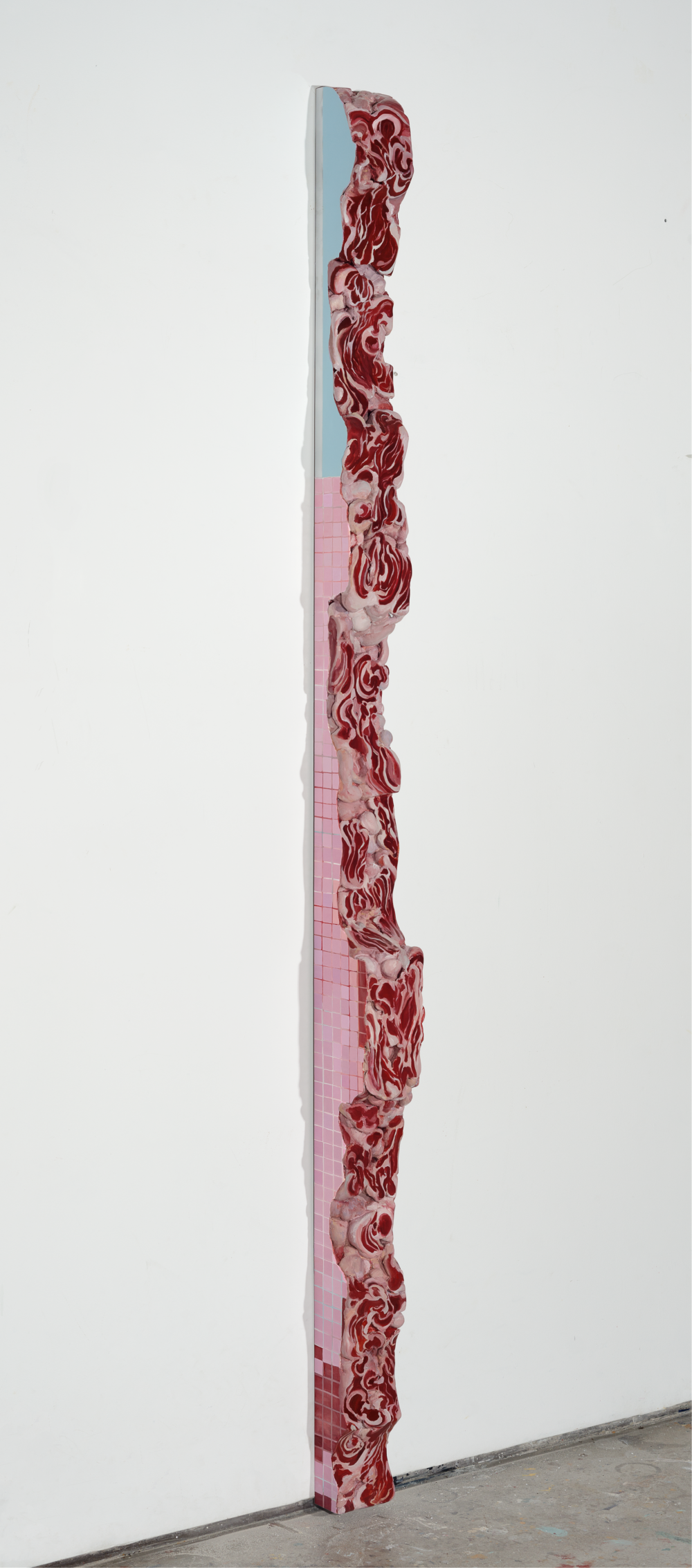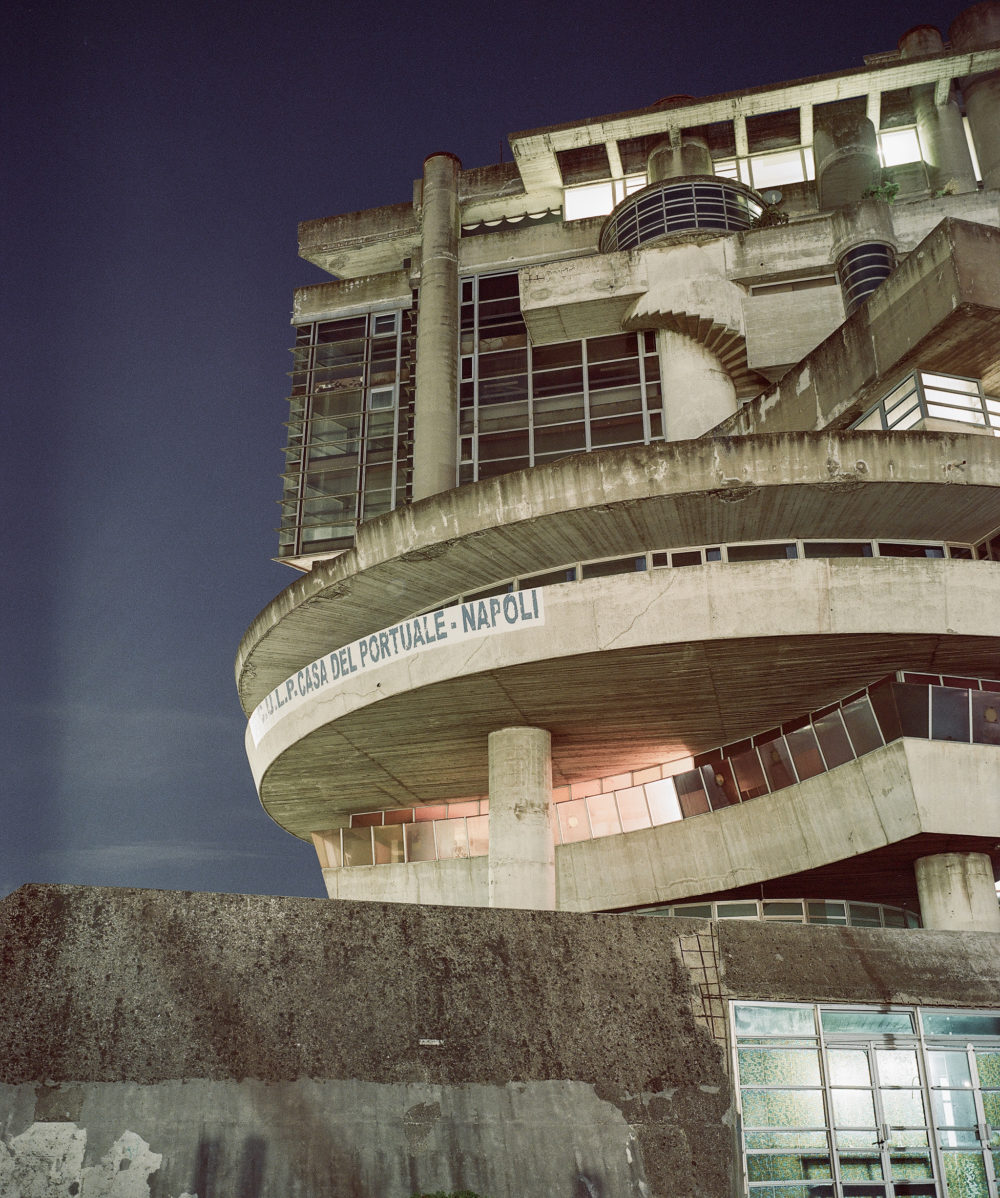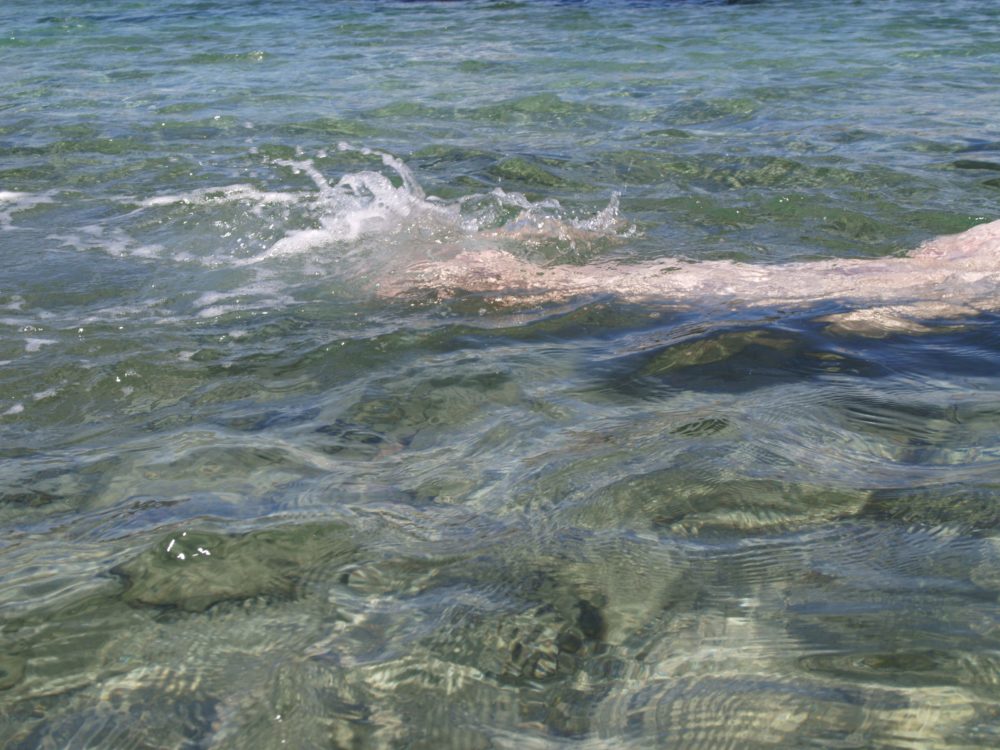
Exhibition
Fina Miralles
I Am All the Selves that I Have Been
Curated by Teresa Grandas
29.10.2022 — 09.01.2023
Opening 28.10.2022
5pm – 9pm
Fina Miralles. I Am All the Selves that I Have Been, curated by Teresa Grandas, addresses the work of this artist through a number of her actions, photographs, installations and paintings. Not only does her reflection on nature and artifice subvert the conventions of our relationship with the environment in which we live and develop as individuals, it also invites us to rethink what we mean by the artistic, the values that underpin art and what gives it meaning. The exhibition does not follow a chronological order, but focuses on a series of works that are central to the structure of Miralles’ practice. These are works that question concepts such as belonging, authority, power and the established order, as well as what gives them value, constantly inverting the notions of art, artist and viewer. The critical potential – denaturalising, even – and the differences and conflicts evidenced by these works demonstrate that the poetic image can also be political.
Exhibition organized by MACBA Museu d’Art Contemporani de Barcelona and Fondazione Donnaregina per le arti contemporanee
In collaboration with Index and Marabouparken, Stockholm
With the support of Institut Ramon Llull
and the collaboration of Museu d’Art de Sabadell.
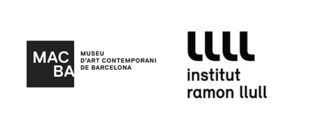
Fina Miralles sees artistic practice as imaginative potential, as a critical practice that does not take place on the level of mental or conceptual articulation, but rather in the place of things, gestures and affections.
The gestures that Fina Miralles exposes us to and confronts us with in her works are not intended to create antagonism between the artist and the spectator, but to show us a conception of art that is closely linked to life. ‘Being an artist is not a vocation, nor a devotion, nor a profession; you don’t know it, but everything pushes you and leads you to be what you are,’ she says.
The artistic operations with which Fina Miralles confronts us are based on translations, on apparently logical relationships between natural elements, that the evolution of a capitalist, dictatorial and Catholic society distances both ideologically and materially. In this way, a simple gesture of transposition of natural elements appears to us not only as audacious, but untenable because it breaks the artificial order of things. Here again, the nature/artifice dualism acquires a broader and paradoxical sense, because Fina’s practice disrupts the order of things that society imposes. Her research goes even further: it is the simple but resounding gesture of displacing grass towards the sea or sand towards a meadow. This gesture not only carries a critical meaning, but also gives rise to new a possible imagery.
Fina Miralles does not accept the demands of society and art. The actions ‘Imatges del zoo’ and ‘Petjades’ make her position as part of her own work clear, contravening the roles established and accepted by a system that demands submission to certain conditions of existence and sustainability, not accepting signs of dissent or rupture. The gesture leaves no room for doubt. The order of things is simply different.
A different order in which she places herself as an artist and as a human being, and which inexorably repositions us too. Not only does she interrogate us, but she relocates us not as mere spectators, but as part of those operations of transformation or translation that permeate her work. Translations of nature, of our daily lives and, therefore, of society. Translations of painting genres, art orders and languages.
Fina Miralles’ work constitutes a process of existential and artistic transformation that creates poetic-political imagery of powerful beauty and strength. Without indulgence, she radically transcends what capitalist society consolidates. Her gestures turn towards other imaginaries that emerge from small dislocations in a soundless, yet melodious form.
Not only does she challenge us, but she makes us recognise ourselves in her actions. Each gesture, each work, generates the interruptions of knowledge and reformulates our gaze: facing the world, other ways of doing, existing and creating. Fina Miralles’ work gives rise to other ways of generating meaning, of existing and of conceiving art.
Through a photographic essay, she tells us about the everyday actions she performs, establishing a political operation in the routine, in which other ways of doing show their transformative and emancipatory potential. She washes herself, eats, looks, breathes, touches, drinks, smokes… yet her narrative does not sanction a mere decalogue of these activities, but rather a shift towards other ways of operating, towards a radically different construction of knowledge, of our ways of thinking and living.
In Fina Miralles. I Am All the Selves that I Have Been, the artist shows herself in her complexity and diversity, in all the selves that she has been as a person and as an artist – which merge into a single entity – and which constitute her as a being, and that trigger the interpretations to which she subjects us, to which she wants us to submit ourselves. The operation of being more than just oneself as an operation of consolidating renewed imaginaries that allow us to define ourselves according to the parameters of other possible orders.
